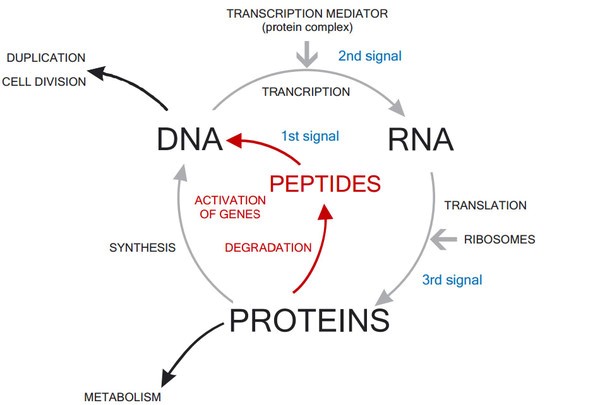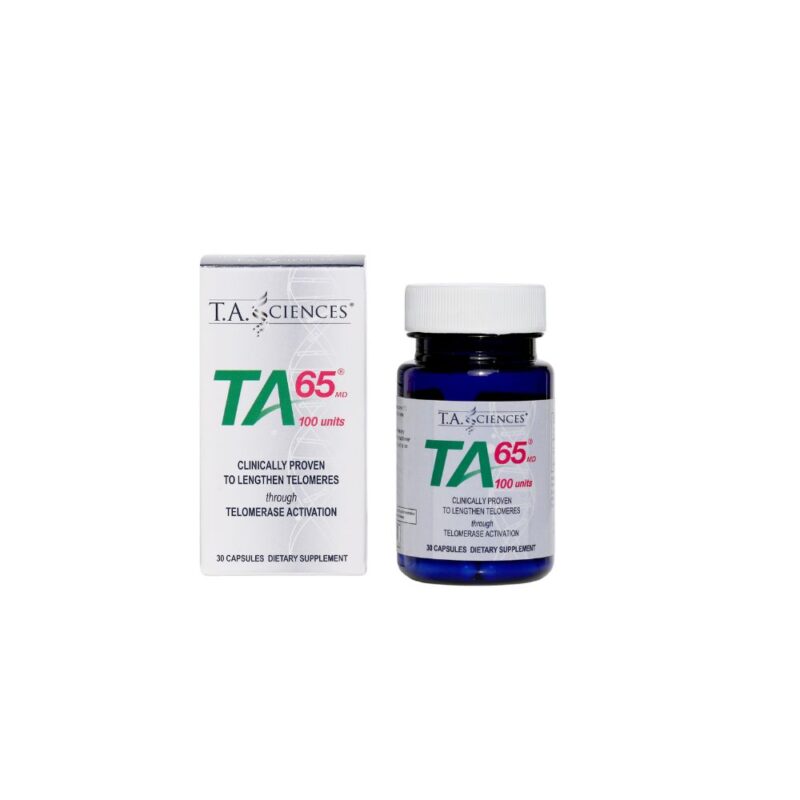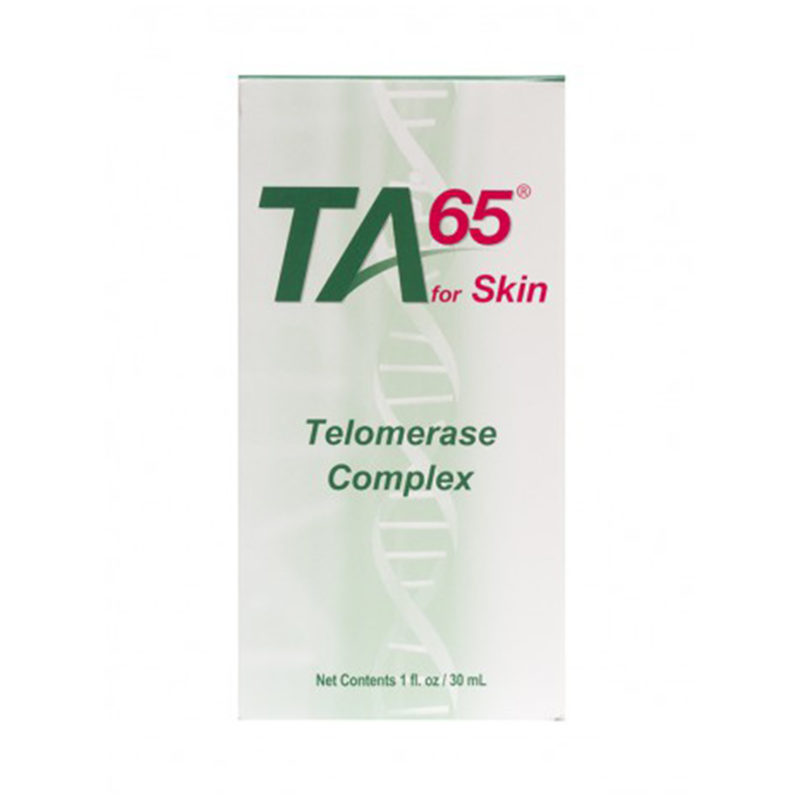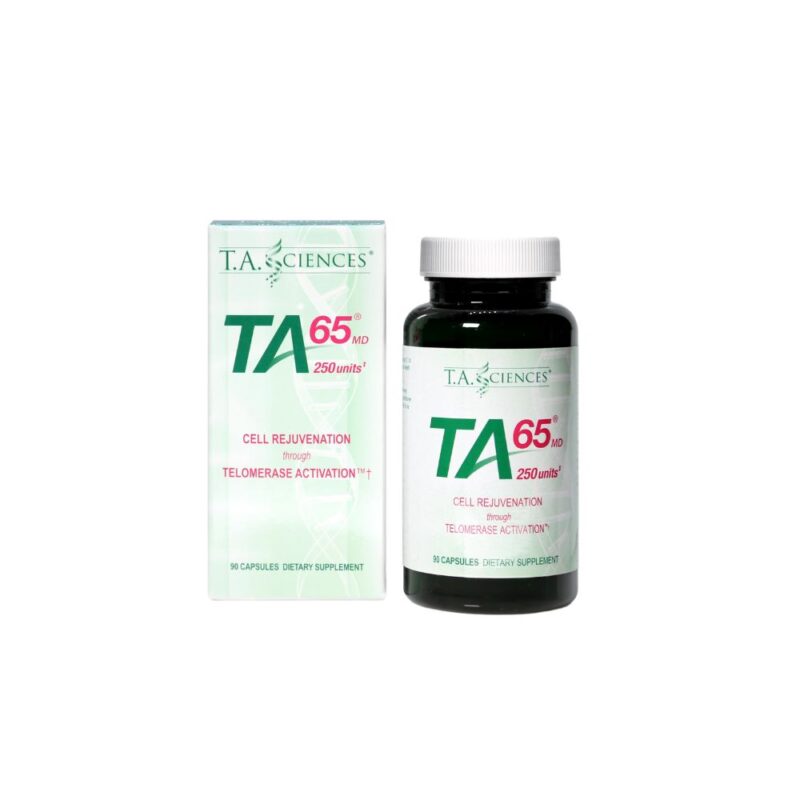Telomerase Modulators
It is true to say that telomeres and telomerase are one of the hottest areas of anti-aging research, but it is also true that the misconceptions and confusion in this area are significant. Here, I will assume that you are already familiar with telomeres and the general function of telomerase. In any case, I will discuss the supplements, nutrients and strategies that can help improve the overall function of telomerase and so result in healthy telomeres, and thus, healthy DNA.
This could be translated into a general improvement in health. However, it has to be made clear that those who expect to take a pill hoping that – through telomerase activation – will defy aging, are simply wrong. The aim here is to study these compounds in the hope that their use will result in up-regulation of certain functions and improvements in health parameters so that the risk of age-related degeneration will be reduced. This risk will not be eliminated completely, and there is no research showing clearly that age-related damage can be totally reversed though telomerase activation. This is because there are many other factors, apart from telomeres, involved in aging.
Also, as usual, I need to make clear that those embarking on treatments aimed at reducing age related dysfunction should do so under expert professional supervision, not only to reduce side effects and complications, but also to select compounds that are specific to their own health requirements.

Image of a chromosome with the telomeres showing in green at the tips
Telomerase modulators are compounds which regulate the function of telomerase. This means that these compounds may increase or reduce the activities of telomerase. The effect may depend on the dosage and it may be confusing to associate a particular compound as a ‘booster’ or a ‘blocker’ of telomerase. The final result will depend on the particular circumstances being studied. So, the following is a short list of such compounds.
Curcumin
Not so long ago it was shown (1) that derivatives of curcumin enhance telomerase activity, both directly and indirectly. This is significant because some other telomerase activators may work only indirectly, through reactivation of a gene (the telomerase reverse transcriptase -TERT gene) which then affects telomerase. However, it has also been shown (2) that curcumin may inhibit telomerase in a dose and time-dependent manner. This finding underscores the characteristic of modulation, when an agent may have positive or negative effects depending on the dose and on several other parameters. The result on this occasion was the initiation of apoptosis (programmed cell death) in cancer cells, which shows that curcumin can be an anti-cancer agent. In this case, the overall benefit of curcumin may be described as both anti-aging and anti-cancer.
Carnosine
Another telomerase modulator is the di-peptide carnosine and its related molecules (N-acetyl-carnosine, carcinine etc.). There are several reports suggesting that carnosine has positive effects on telomeres (3). This may be partly due to the antioxidant properties of carnosine but it is likely that there are other ways by which carnosine may enhance telomerase (4). The telomere-protective effect of carnosine was also seen in the lens of the eye, where it is known that carnosine (and related compounds such as N-acetyl-carnosine) may help reduce the risk of cataract (5).
Cycloastragenol
One of the most well-known telomerase activators is the compound cycloastragenol. This is a bioactive triterpene aglycone derivative of astragaloside, an extract of Astragalus membranaceus and specifically, from its root (e.g., radix astragali). Teas and extracts of this plant have been used in traditional medicine as health supplements and it is known that cycloastragenol has several other effects apart from the telomerase activities (6).
Cycloastragenol is sometimes marketed under the trade name TA65®. As I mentioned above, research shows certain health improving benefits of telomerase modulators, but no life-span prolonging effects, (i.e. no eradication of aging.) An interesting study has shown that cycloastragenol not only promotes telomerase activity, but it may also be useful in reducing depressive symptoms (7). This is relevant because other studies have shown an apparently strange and unexpected relationship between telomerase and depression (4).
In another project, it was shown that a direct derivative of cycloastragenol, a compound called GRN510 which is a small proprietary molecule, also has telomerase enhancing activities. The authors showed that treatment with GRN510 at 10 mg/kg/day can activate telomerase up to 4 fold both ex vivo and in vivo (8). GRN510, through a mechanism of telomerase activation, also suppressed the accumulation of senescent cells in the lung.
The safety profile of TA65® was evaluated by studying its effects over a 5 year period and involving 7000 person-years of use (9). No adverse effects were recorded. In addition there was an improvement of fasting glucose levels, a reduction of total cholesterol and low density lipoproteins, a reduction of both systolic and diastolic blood pressure, and a reduction in the levels of homocysteine (which, if elevated, is a risk factor for heart disease). Some participants were also found to have improvements in their bone density, making them less sensitive to osteoporosis. These results confirm that by improving the function of telomerase, we may experience health span extension. Another thorough study of the side effects of cycloastragenol, confirmed that no significant adverse effects were observed (10).

The structure of cycloastragenol
In mice, TA65® was found to reverse age-related shortening of telomeres, and increased the health status of the treated animals. Significantly, this was achieved without increasing the risk of cancer (11).
Parent essential oils (PEO)
These are unadulterated oils such as omega-6 and omega-3, and they have a wide spectrum of health benefits. Omega-3 supplementation was found to slow down shortening of telomeres in older people who had cognitive impairment (12). Other studies also confirmed these benefits and effects of omega-6 and omega-3 fatty acids on telomere length. Here, the ratio of omega-6 to omega -3 is relevant. Telomere length seems to increase when the ratio of 6-3 decreases. These PEO also positively affect inflammation, oxidation and immune response (13).
Other ways to improve telomere health
Apart from specific compounds, it is also possible to employ lifestyle strategies that may act against premature shortening of the telomeres. Such measures include hormetic agents (14) such as those I describe in my article here: www.academia.edu/19174370/Vitagenes_and_Hormetins_The_pills_of_Hormesis.
Exercise is another way of improving telomere health, but long-term exercise may cause shortening of telomeres! (15) This indicates the importance of moderation in all activities we undertake. Meditation and cognitive effort are also positively associated with longer telomeres. Several clinical trials have shown longer telomeres and a more active telomerase in those who maintain their cognitive function. Meditation, (i.e. internal cognitive effort) such as yoga is known to up-regulate telomerase (16). A review of 190 participants in meditative practices confirmed the above benefits (17).
In a study (18) a group of 39 middle aged people received either yoga-style meditation or listening to relaxing musing, for 12 minutes a day for two months. Those in the yoga group showed improved wellbeing and a 43% improvement of their telomerase activity compared to the music group. This shows that active mental effort may be associated with improved telomerase, and this is a crucial fact that may confirm my earlier hypothesis about trying to be cognitively active as a way of defying age-related degeneration- this can be read here: https://peerj.com/preprints/1560
A promising concept: peptides bioregulators
An exciting development is the prospect of using peptide bioregulators in order to upgrade the function of telomerase. Peptide bioregulators are short amino acid sequences which may be interacting with the DNA to produce a variety of health actions. The great majority of research has been performed by the laboratory of Russian scientist Vladimir Khavinson and his team. He published a number of books and scientific papers explaining the action of such peptides (19, 20).

The role of peptides in the metabolism: The degradation of proteins produces peptides (protein fragments) which then activate genes and so may help in experiencing health improvement effects.
In one paper, Khavinson’s team described the peptide epithalon, (a tetrapeptide made from four amino acids: alanine, glutamic acid, aspartic acid and glycine) and its activities in relation to telomerase. They reported that, in human somatic cells, epithalon can induce the expression of telomerase and improve telomere elongation by an average of over 33% (21).
[Ed. – Epithalon, the pineal peptide in oral form is called Endoluten®].
In summary, we see that there is a reasonable degree of research supporting the use of certain oral compounds in improving health through telomerase activation. A lot of new research is still being conducted on common products such as ginkgo biloba, silymarin, vitamin Bs, purslane and other still unknown laboratory compounds. This is a promising area of research, forming part of an overall comprehensive plan aimed at achieving extension of health span.
References
- Taka T, et al. Curcuminoid derivatives enhance telomerase activity in an in vitro TRAP assay. Bioorg Med Chem Lett. 2014 Nov 15;24(22):5242-6
- Chakraborty S, et al. Inhibition of telomerase activity and induction of apoptosis by curcumin in K-562 cells. Mutat Res. 2006 Apr 11;596(1-2):81-90
- Babizhayev MA, et al. Novel neuroendocrine and metabolic mechanism provides the patented platform for important rejuvenation therapies: targeted therapy of telomere attrition and lifestyle changes of telomerase activity with the timing of neuron-specific imidazole-containing dipeptide-dominant pharmaconutrition provision. Recent Pat Endocr Metab Immune Drug Discov. 2014;8(3):153-79
- Hipkiss AR. Possible Benefit of Dietary Carnosine towards Depressive Disorders. Aging Dis. 2015 Oct 1;6(5):300-3
- Babizhayev MA, Yegorov YE. Biomarkers of oxidative stress and cataract. Novel drug delivery therapeutic strategies targeting telomere reduction and the expression of telomerase activity in the lens epithelial cells with N-acetylcarnosine lubricant eye drops: anti-cataract which helps to prevent and treat cataracts in the eyes of dogs and other animals. Curr Drug Deliv. 2014;11(1):24-61
- Yung LY, et al. Astragaloside IV and cycloastragenol stimulate the phosphorylation of extracellular signal-regulated protein kinase in multiple cell types. Planta Med. 2012 Jan;78(2):115-21
- Ip FC, et al. Cycloastragenol is a potent telomerase activator in neuronal cells: implications for depression management. Neurosignals. 2014;22(1):52-63
- Le Saux CJ, et al. A novel telomerase activator suppresses lung damage in a murine model of idiopathic pulmonary fibrosis. PLoS One. 2013;8(3):e58423
- Harley CB, Liu W, Flom PL, Raffaele JM. A natural product telomerase activator as part of a health maintenance program: metabolic and cardiovascular response. Rejuvenation Res. 2013 Oct;16(5):386-95.
- Szabo NJ. Dietary safety of cycloastragenol from Astragalus spp. subchronic toxicity and genotoxicity studies. Food Chem Toxicol. 2014 Feb;64:322-34
- Bernardes de Jesus B, et al.The telomerase activator TA-65 elongates short telomeres and increases health span of adult/old mice without increasing cancer incidence. Aging Cell. 2011 Aug;10(4):604-21
- O’Callaghan N, et al.Telomere shortening in elderly individuals with mild cognitive impairment may be attenuated with ω-3 fatty acid supplementation: a randomized controlled pilot study. Nutrition. 2014 Apr;30(4):489-91
- Kiecolt-Glaser JK, et al. Omega-3 fatty acids, oxidative stress, and leukocyte telomere length: A randomized controlled trial. Brain Behav Immun. 2013 Feb;28:16-24.
- Sonneborn SJ. Alternative strategy for Alzheimer’s disease: stress response triggers. Int J Alzheimers Dis. 2012;2012:684283
- Ludlow AT, et al. Chronic exercise modifies age-related telomere dynamics in a tissue-specific fashion. J Gerontol A Biol Sci Med Sci. 2012 Sep;67(9):911-26.
- 16 Kumar SB, et al. Telomerase activity and cellular aging might be positively modified by a yoga-based lifestyle intervention. Psychoneuroendocrinology. 2014 Apr;42:45-8.
- Schutte NS et al. A meta-analytic review of the effects of mindfulness meditation on telomerase activity. J Altern Complement Med. 2015 Jun;21(6):370-2.
- Lavretsky H, et al. A pilot study of yogic meditation for family dementia caregivers with depressive symptoms: effects on mental health, cognition, and telomerase activity. Int J Geriatr Psychiatry. 2013 Jan;28(1):57-65.
- Anisimov V, Khavinson VK. Small Peptide-associated Modulation of Aging and Longevity. In: Modulating Aging and Longevity. Kluwer Academic Publishers, UK. Rattan SIS (ed.) 2003.
- Khavinson VK, Malinin VV. Gerontological Aspects of Genome Peptide Regulation. Basel (Switzerland): Karger AG 2005.
- Khavinson VK, Bondarev IE, Butyugov AA. Epithalon peptide induces telomerase activity and telomere elongation in human somatic cells. Bull Exp Biol Med. 2003 Jun;135(6):590-2


